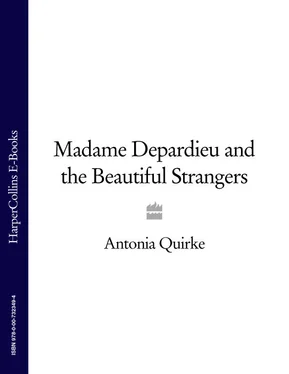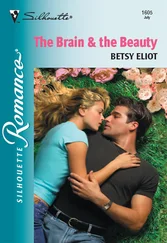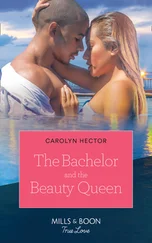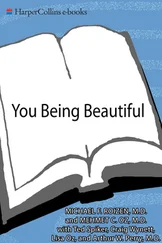In the single-figure audiences at the pub theatres where I was sent to review plays and where the actors could detect my gaze, I yearned for Jim and for the remove of the big screen, where actors moved in innocence of my eyes. My first plan was to impress him with the commitment of my reviews. I found out a lot of statistics and waved them at him like breasts at the pub on Thursday.
‘Did you know that there are 38,000 members of Equity, and at any one time only 13,400 are actually in work? It's shocking.’
‘In what way shocking?’
‘It's union-bashing, isn't it? Listen, these are working people. If there are fifty fringe theatres in London and they've got a cast of, let's say, an average of six per play, then that's, uh, 300 people, and if the Equity minimum is £85 a week, then that's 300 people living on a pittance. Eighty-five pounds a week!’
‘That's more than twice what you earn, love.’
My other plan was simply to write such astonishingly unforgettable reviews – reviews you could poke your eye out on – that notice would simply have to be paid. They were skull-crackingly bad. But they looked quite good. About a monologue on Virginia Woolf I wrote: ‘“I am mad! I hear voices! Not only that, I write them down!” That is, I suggest, what the character wanted to say. But where in all of this is our delicious wine? Our great little knitter?’ The worse the plays the more free I felt to woo Jim with this unique voice. And so it became a kind of competition. The more terrible the plays were the more terrible the reviews were. It was a contest of terribility. I wafted my pen around like Isadora Duncan, desperate for a glance from him. And one day he did call me over.
‘Listen, Sally. You've got to stop writing these reviews or Eric's going to sack you. And if he does that, you're fucked.’
I could feel the wind from Naked tugging at me, trying to tear me off London and suck me up the Archway Road towards the motorway and the oubliettes of the North. I also thought: He's noticed me. I wanted him. I even want him now, as I write, a painful need, never since matched, to touch him, though he was like a jagged piece of corrugated iron which would cut you no matter how you held it.
Glyn Maxwell has written some fine poetry and some bewilderingly wonky plays, but when Jim found out that there would be free drinks after a production of a new Maxwell play at the Battersea Arts Centre he decided to tag along. As we were leaving the paper an ad-boy laughed at the idea of Battersea.
‘Your drinking's changed, mate,’ he said to Jim.
‘It's not my drinking that's changed. It's your non-drinking. You might have stopped; I'm just carrying on as normal.’
At the interval Jim said he was going to leave and I tailed after him to the box office where he was demanding his money back and the girl was refusing to give the refund. He loomed over her like one of the inquisitors in Dreyer's film of Joan of Arc.
‘I can only refund you if you found it offensive in some way,’ she said.
‘I found it offensive in every way. It was shit.’
‘I can't refund you for that. Did you think it was sexist?’
‘No, it was just fucking terrible, and I'm going now and I would like my money back.’
‘Did you think it demeaned any minority group?’ the girl said. She was trying to open a pathway to a compromise. ‘Did it offend you racially?’
‘It offended the entire fucking human race. Is that good enough?’
Jim's aggressiveness felt to me like something from an earlier time, when people were rougher and less touchy, when less offence was taken and given, when people were less proud of the masks that they wore. It seemed that Jim's aggressiveness almost relieved him of the burden of goodness – it was his good manners, doing you the courtesy of withholding nothing. Or perhaps I was making excuses for him. As he sailed down Lavender Hill in his yellow coat, leaving his disdained wake behind him, I hurried after, raising my voice to ask if this behaviour usually got him anywhere with women.
‘Yeah, lots – some fantastic ones, actually. Sometimes they let me fuck them. But usually they just want to tell me about their suicide attempts.’
What a horrible man! He crouched down to do up a shoelace and, since he was briefly my height, with his tongue half out of his mouth in a bite of concentration, I stepped forward and put my mouth around it.
And this was brave. This was acting. It sometimes seems as if a romantic history is the history of the removal of the need for courage. As you get older, you only need it for leaving. And even the braver of us – among whom I do not number myself – only use our courage two or three times in a life. It takes too much out of you, until you don't have enough to lose really to call it courage any more rather than heedlessness. So I stepped forward and lost my courage virginity. I would have two or three more to lose only. He reorganised his mouth and kissed me back as he straightened up.
And when we went back to his flat at the top of a tower block by Mornington Crescent, I was bouncing around like Zebedee, not only in the delight of possession but in the joy of having created it all myself. I did this! I thought as his puritanical flat revealed itself to me. I made this! , and this, and this hair, really the colour of rust right up close, and the taste of it too, and these collarbones and these elbows, and these ribs, and these grooves between his belly and his hip-bones, and even these jokes he's cracking causing me to look momentarily up, and these thighs and long shins – all of it magicked up by my courage. Anything I did, like this, and this, and that, and that again, I had brought into being!
Love runs through you and uses you as a device to get what it wants, and when you're in love you're simply keeping pace with it for a moment, briefly allowed to lope along at the front where everything that comes into view is new.
Let's get something straight. The most embarrassing film to like, if you're English, is Withnail and I, Bruce Robinson's failed-actor comedy with Richard E. Grant and Paul McGann. Even the BFI Classic on Withnail begins with much blushing and a statement that to admit to a liking for the film is to declare oneself unfit for adult company. Let's get another thing straight. If Kind Hearts and Coronets is not the funniest British film ever made, it's Withnail. If Kes is not the most touching British film ever made, it's Withnail. No film at all is as loved as Withnail, and if your hatred of students extends to dismissing that love then you're probably someone whose response to films stops at something like ‘intense admiration’. In fact, bugger Kind Hearts and Coronets, it is the funniest film in English. It's also a better film about the sixties than something like Blow-Up and, very indirectly (it's a subtle movie), an exceptional film about homosexuality.
The model for Withnail was a failed actor called Vivian MacKerrell whom Robinson knew. But Robinson is a failed actor too. He had parts in Zeffirelli's Romeo and Juliet and other bits and pieces before turning up, extraordinarily handsome, as the object of Isabelle Adjani's amour fou in Truffaut's The Story of Adele H. (great movie!). He's pretty good. He's really very good. All he gets to do is simply be there while Adjani's wave breaks over him. You'd have to see it, if you haven't already. But after that Robinson's phone wouldn't ring. So he became a writer and did The Killing Fields before Withnail and directing. Then he sort of failed as a director. He continues to sort of fail as a writer. Is there any profession in the world with as high a rate of failure as acting? As the movies as a whole? This is a book about successes (apart from me, obviously) and all the actors I mention share a common trait, because being successful is a trait – they're all one kind of person, whereas partial success or failure is various.
Читать дальше












